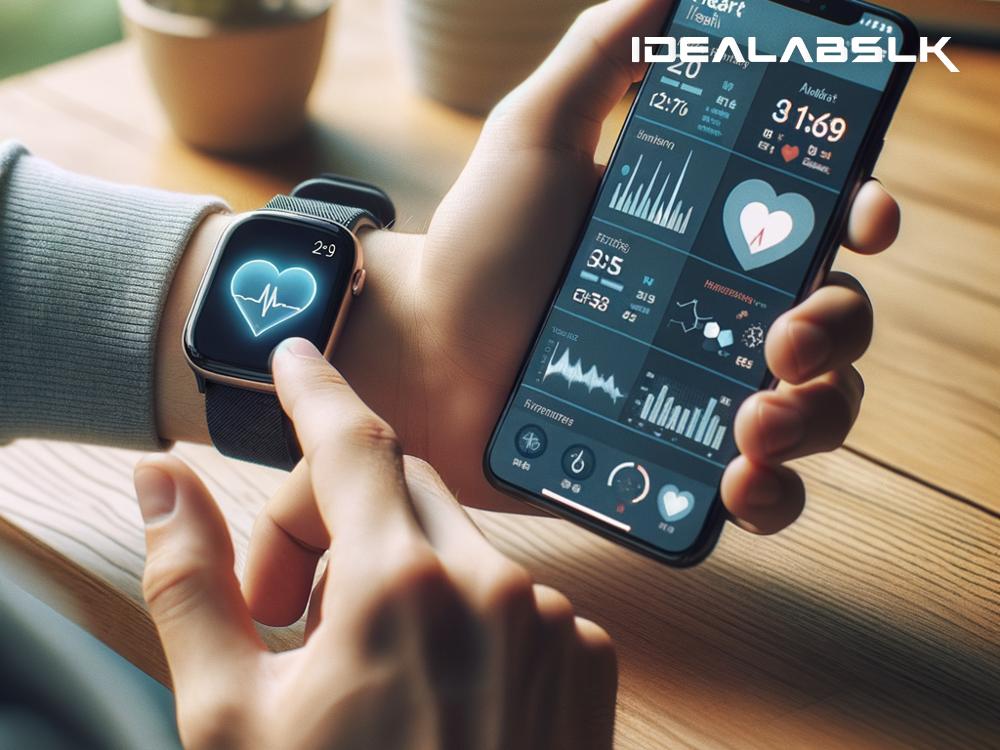How to Use Technology to Monitor Your Heart Health: Wearables and Apps for Better Cardiovascular Care
In today's fast-paced world, where health often takes a backseat due to our busy lifestyles, technology comes to the rescue, especially when it comes to monitoring our heart health. Thanks to advancements in wearable tech and mobile applications, keeping an eye on our cardiovascular fitness has never been easier. Whether you're a fitness enthusiast, someone with a heart condition, or just someone looking to stay on top of your heart health, there are plenty of tools available to help you out.
Why Monitor Your Heart Health?
Monitoring your heart health is crucial, not just for athletes but for everyone. It helps in identifying potential issues early, managing existing conditions, and even in improving overall fitness and well-being. Regular monitoring can alert you to changes in your heart rate, blood pressure, and other critical indicators, which can be vital in preventing severe conditions such as heart attacks or strokes.
Wearables: Your Fitness Trackers and Smartwatches
One of the most accessible and popular methods to monitor heart health is through wearables like fitness trackers and smartwatches. These devices sit comfortably on your wrist and keep tabs on your heart rate 24/7. Many of them can also measure your heart's rhythm, and some are sophisticated enough to detect irregularities such as atrial fibrillation (AFib), which can be a precursor to more serious heart conditions.
Additionally, these wearables can track your physical activity, sleep quality, and even stress levels, offering a holistic view of your health. For instance, devices like the Apple Watch or the Fitbit series are equipped with sensors and algorithms that provide insights into your cardiovascular health by observing your resting heart rate, exercise patterns, and more.
How to Use Wearables Effectively?
-
Wear It Regularly: For accurate tracking, it's essential to wear your device as much as possible, especially during workouts and sleep.
-
Understand the Data: Familiarize yourself with the metrics your device tracks. Knowing what a normal heart rate range looks like for you can help you spot anomalies.
-
Set Goals: Many devices allow you to set fitness goals. Use this feature to challenge yourself and improve your heart health gradually.
-
Sync with Apps: Most wearables come with companion apps. Syncing your device with these apps can offer more in-depth analysis and historical data tracking.
Mobile Apps: A Closer Look at Your Heart
In addition to wearables, numerous mobile applications are dedicated to cardiovascular health. These apps range from simple heart rate monitors to detailed trackers that record your blood pressure, cholesterol levels, and even offer ECG (electrocardiogram) functionality. They not only help in tracking but also in understanding your heart health better.
Apps like Cardiio, Instant Heart Rate, and Blood Pressure Companion are excellent for getting a quick glance at your heart’s functionality. Meanwhile, more comprehensive platforms such as Kardia and Qardio provide features like ECG monitoring and cloud storage for sharing your data with healthcare professionals.
How to Make the Most Out of Heart Health Apps?
-
Regular Tracking: Make it a habit to regularly track your heart rate, blood pressure, or any other metric that’s relevant to you. Consistency is key.
-
Analyze Trends: Most apps offer weekly or monthly summaries. Review these trends to understand how your lifestyle affects your heart health.
-
Seek Professional Advice: While these tools are great for monitoring, they’re not diagnostic tools. If you notice any concerning trends, consult a healthcare professional.
Conclusion
The blend of wearable technology and mobile applications provides a powerful arsenal in the battle for better heart health. They give us unprecedented control and insight into our cardiovascular fitness, making it easier to live healthier lives. However, it’s important to remember that these devices and apps are supplementary tools. A balanced diet, regular exercise, and routine check-ups with your doctor are equally important in maintaining a healthy heart.
In the end, by pairing technology with smart lifestyle choices, we can significantly reduce our risk of heart disease and lead a happier, healthier life. So strap on that smartwatch, download that app, and take the first step towards a healthier heart today.

